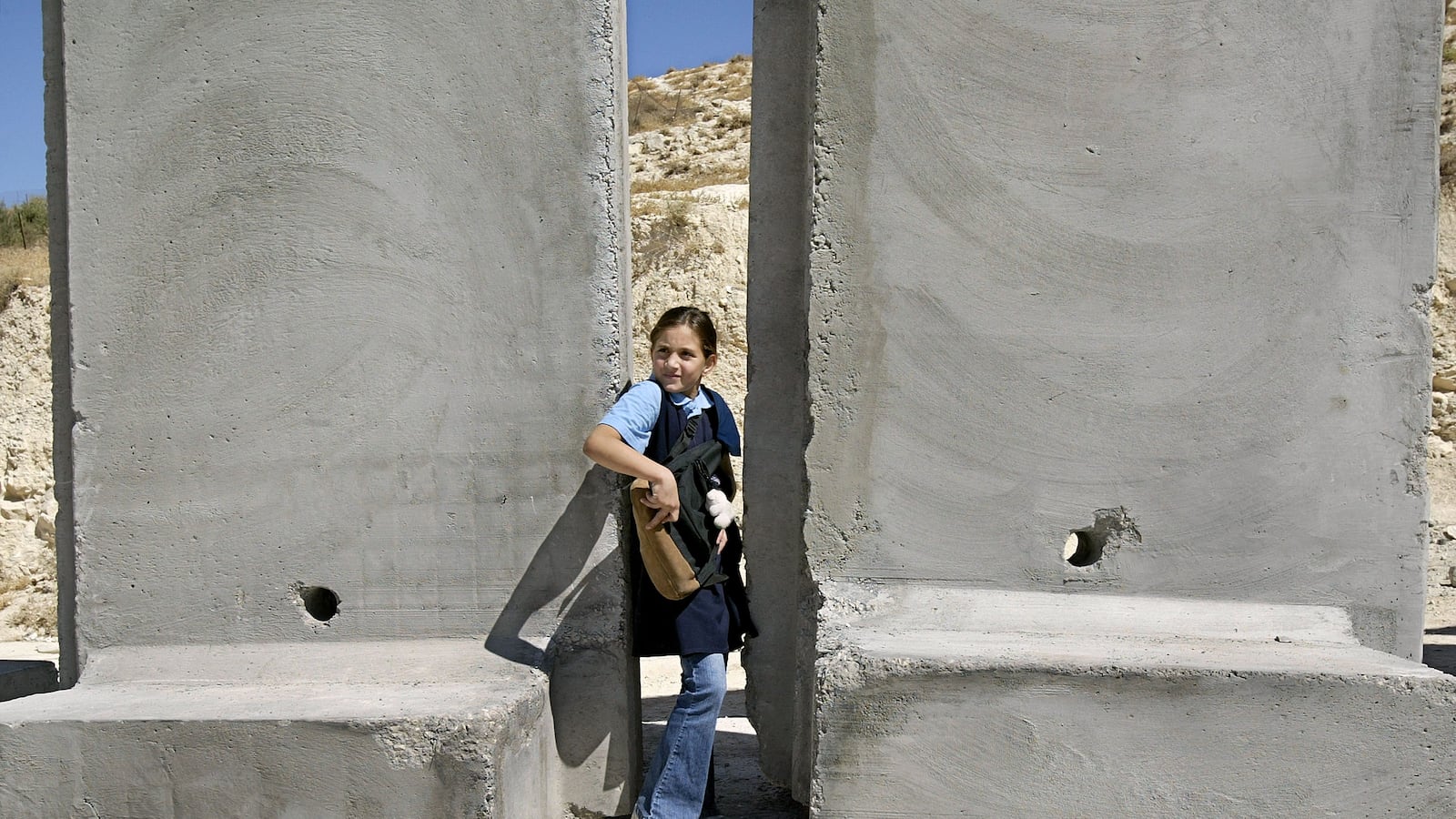“Do you support Bennett? A strong Israel for Jews, and stop Arabs from stealing our land—Netanyahu has given away too much of our land already,” a young man in Jerusalem campaigning for Naftali Bennett, the right-wing leader of the Jewish Home Party, told me and three friends while we walk through the city center in West Jerusalem on Sunday, two days before Israelis headed to the polls.But on our way back to Ramallah, gunshots rang out then ambulances and police cars blocked the street. A demonstration in Al Ama’ari Refugee Camp protesting the Israeli treatment of Palestinian prisoners had become violent, and the Palestinian Authority (PA) police invaded the camp, injuring three. As we walked through the hospital on our way home, families were waiting to hear about loved ones, and PA police, their guns ready to fire. Through the night, gunshots continued from the camp.

Back in Jerusalem for election day, this time sitting on the stairs of Damascus Gate with Israeli activists from Taayush, a grassroots movement of Jews and Arabs that, according to their website, is “striving to break down the walls of racism and segregation with a true Jewish-Arab partnership.” However, none of the Arabs from the Jewish-Arab partnership are present—perhaps due to logistics owing to the wall that restricts their access to Jerusalem.Elif Elak, an Israeli activist with Tayyush tells me, “I don’t think that voting in the election is an act of democracy, they are undemocratic elections when so many people can’t vote.” Though Elak was unsure of whether or not she would boycott the election, if she did vote, she would vote Hadash, the communist party.
Dror, another Israeli activist who prefers not to give his last name, spoke to me as he was leaving Damascus Gate. His sentiments were similar to Elak. “The Israeli elections are another form of the Zionist government, that for me has no legitimacy,” Dror said. “So the elections are not legitimate or democratic in any way.”
I left Damascus gate as well, and took the light rail towards the predominantly Arab Sheikh Jarrah neighborhood in East Jerusalem. On the light rail—a controversial project that goes from the Jewish settlement of Mount Herzel to the predominantly Arab East Jerusalem, and one of the few opportunities for Jewish Israelis and Arab Palestinians to mix—a group of young girls told me they were voting for Bennett.
There are no polling stations in the predominantly Arab neighborhood of Sheikh Jarrah: most of the population is Palestinian Arab, meaning that—along with Palestinians living in the West Bank and Gaza—they are part of the thirty-five percent of the population that, despite being under the control of the Israeli authorities ,cannot vote in the elections. I asked four Palestinian shop owners what their thoughts on the Israeli elections were; each of them replied in some variation of, “I don’t want to talk about it.”
Back in Ramallah, the Israeli elections seemed worlds away, the politics fading just as the carefully paved roads inside the Green Line gave way to jagged pavement congested with traffic. One Palestinian man in Al-Manara Square, who prefers to be unnamed simply said, “Why care?” Still, the Palestinians living in Ramallah are subject to Israel’s leaders—whether those leaders are in charge of the currency, the New Israeli Shekel that is used in both Israel and Palestine, or wish to create a settlement smack between Ramallah and East Jerusalem, effectively cutting one off from the other, dividing people from their families and their livelihoods. Rule by Israeli leaders—and their potentially racist and discriminatory policies is inevitable—but they have no say one way or the other.
On the other side of the wall, exit polls suggested an only slightly daunted Benjamin Netanyahu will once again be Prime Minister of Israel. It is unlikely, as always, that the more tolerant parties, such as Hadash, Da’am and Balad, will have any meaningful place in any coalition. On the Palestinian side of the wall, it makes no difference.
UPDATE: This post originally reported that three were killed by PA security forces at Al Ama’ari Refugee Camp. The latest reports indicate that three people were injured.






